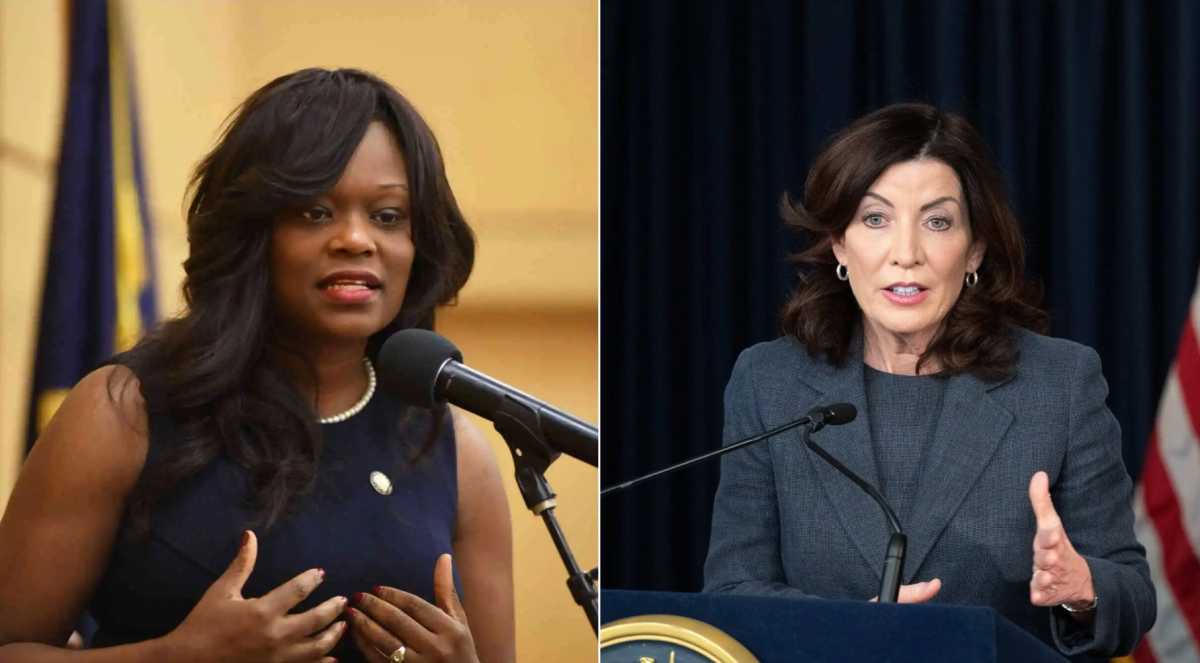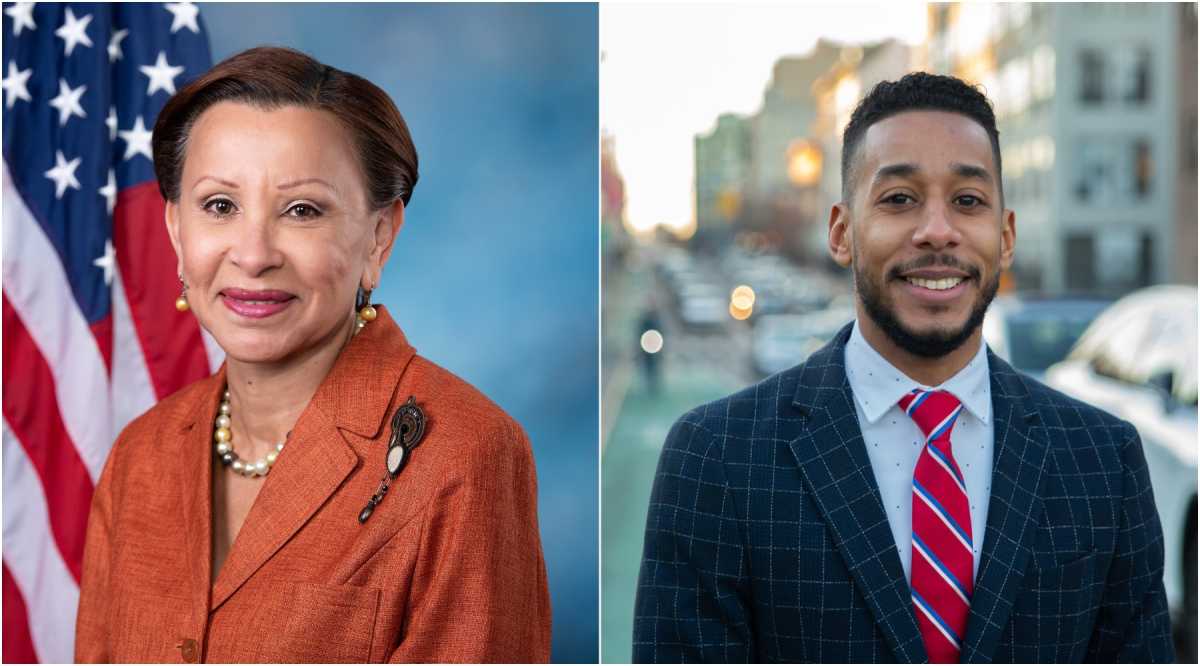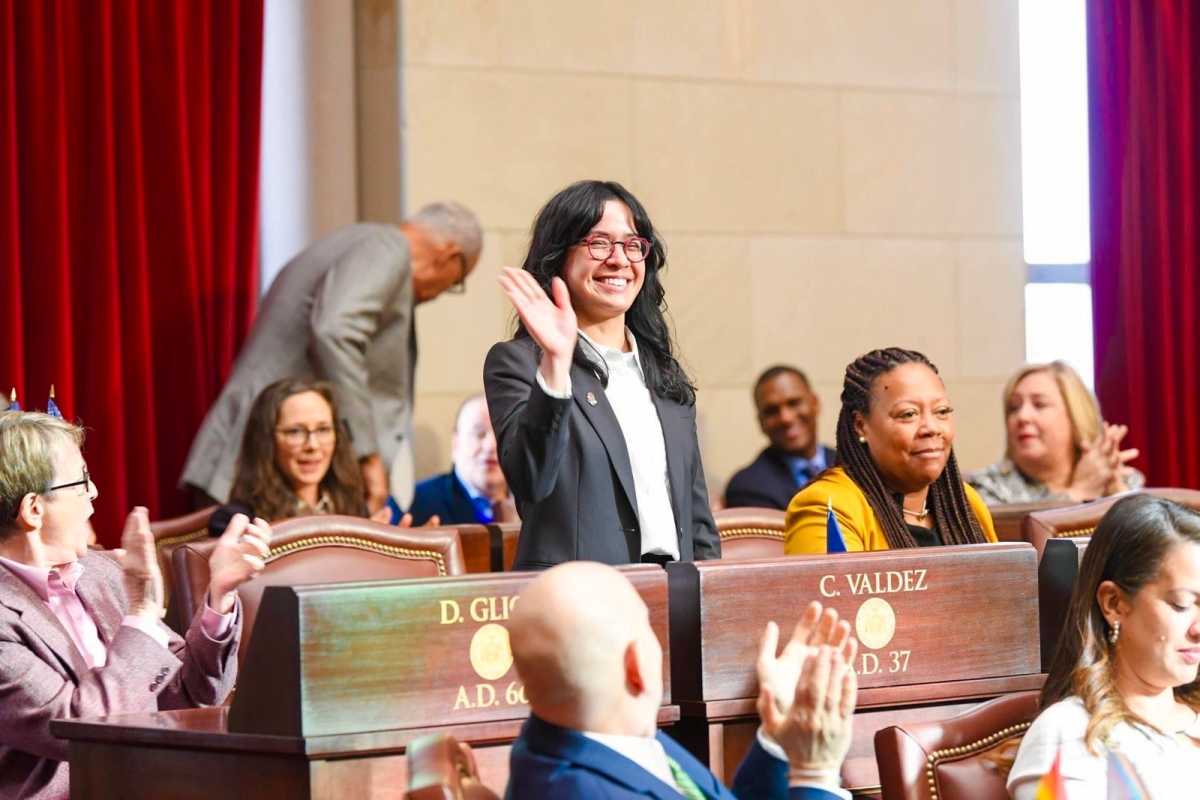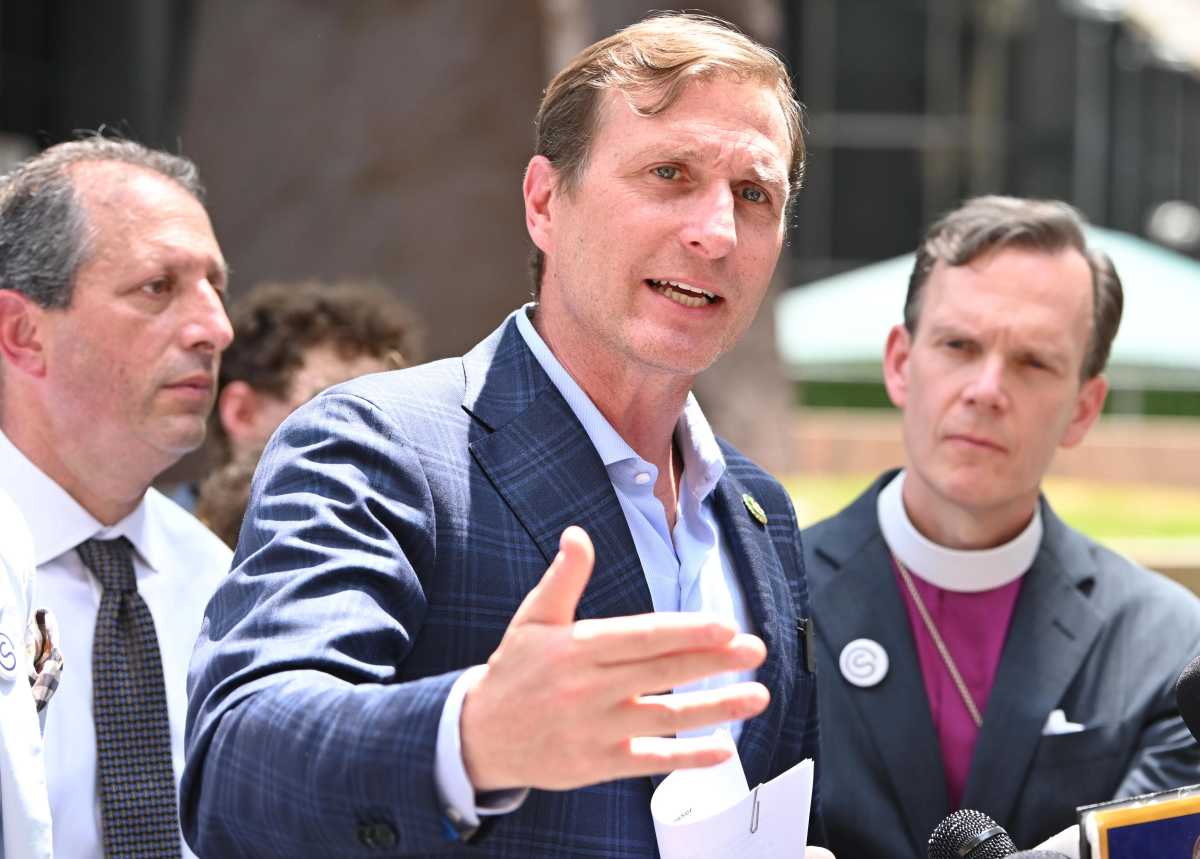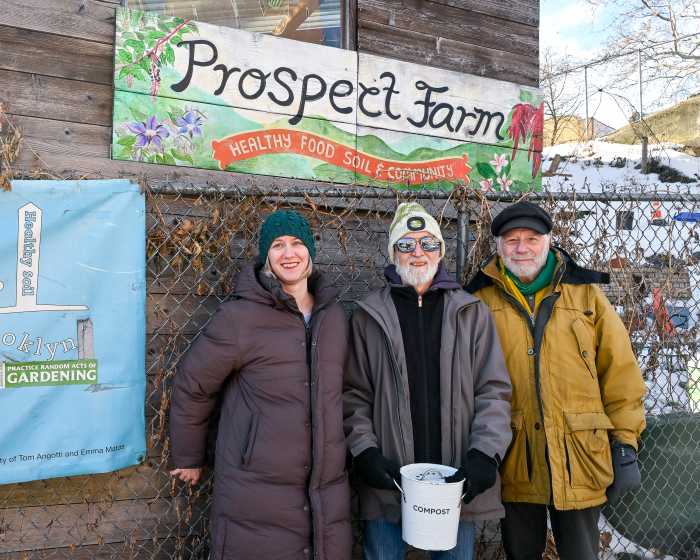As part of an on-going series, KCP is asking candidates running for state office in the upcoming Sept. 13 primary about issues that matter and that are being debated in Albany.
Debbie Medina is running against incumbent 18th District State Sen. Martin Malavé Dilan in the Democratic Primary on September 13th. The district’s center is Bushwick and includes large swaths of Williamsburg and Greenpoint as well as parts of Cypress Hills, City-Line, East New York, Bedford-Stuyvesant, and Brownsville.
KCP listed the following factoid and then posed the following question to both candidates:
Bushwick leads the borough in children being born to low-income mothers. According to New York City Department of Health and Mental Hygiene 2014 statistics, Bushwick had the highest number of births to mothers on Medicaid in the district. According to Citizens’ Committee for Children‘s 2014 statistics, Bushwick (37.7%) was sixth in the highest percentage of children living in poverty in Brooklyn, coming behind Brownsville (52.8%), Borough Park (44.8%), Coney Island (44.8), Williamsburg (43.5%) and Bedford Stuyvesant (44.2%), which means that percentage of children are living in families with incomes under the poverty line.
Knowing that Bushwick has historically been an area with one of the highest concentrations of children born into poverty in Brooklyn, how would you, if elected, decrease this rate of poverty for Bushwick with constituency services and legislation?

Debbie Medina: “We need to make sure that Bushwick residents are being connected with good jobs at good wages. My office will work to connect people directly with employers and, more importantly, trade unions. But to really solve this problem, we need good policy. We need higher taxes on the wealthy to fund spending on our roads, rails, and bridges – which could create tens of thousands of good, well-paying jobs. We also need free day care, for families that can’t afford high-quality childcare.”
Sen. Martin Malavé Dilan: “Poverty is a circumstance of long-lasting and systemic issues that extend through generations throughout Brooklyn and the nation. It’s better today than it was in the 1970s, but it remains a reality for far too many. To change that reality we need a holistic, generational approach that deals with quality of life as it relates to the entire community, man, woman and child, from birth to retirement.

“I found my start in public service as someone who wanted to improve local educational opportunities bringing new schools to the community. I have persistently fought for school reforms and new programs such as Community Schools. I was proud when the Senate added $175 million to this year’s budget for these schools. We’re shaping the educational experience to the realities and resources within communities. We’re looking to teach an entire generation using academics, social services and community engagement through a lens of real-world application of learning and community service. By design, this model will impact larger issues of the community both in the context of learning and influence; and extend from the student, to the family and community organizations. The entire population, from kindergartner to retiree, documented or not, is represented in this community-building process. Everyone, man, woman and child, will play a part and make an impact.
“Neighborhood partnerships will be vastly expanded as a result of this ground up approach. As they do, government will have a better sense of where new economic opportunities can be had. No one can doubt, that with the loss of the middle class and the work opportunities that made Brooklyn what it is, came the scale of poverty we know today. More people come, and no new opportunities spring up. We need to turn our focus to giving people the opportunities to afford, rather than solely rely on giving them homes they can afford or money to afford them. Both these are important, but they are by no means a solution. They are remedies, vastly outpaced by need and economic realities.
“We need to invest in job opportunities. We need to attract new businesses and industries that produce Brooklyn products, and employ Brooklynites. People need work in industries and services that provide stable employment and good wages; men and women need to be paid equally, and families need the time and resources to grow and flourish. We need to help our current businesses remain competitive, and look to affordable community-commercial spaces and opportunities. People need to see opportunities, see success, to know they are out there. The Brooklyn brand has never been stronger and I will continue to sell it everywhere I go.
“Not only do our families need job opportunities they need affordable and reliable transportation to get them to work. That is why I have continually advocated for the full funding of the MTA’s capital plan and pushed for improved service throughout North Brooklyn.
“Much of these programs will begin to have an impact on our underlying societal issues, such as crime and our criminal justice system as it stands today. We’ll be in a better position to address the criminal and societal circumstances of crime; end the court-ascribed purgatory of jail time for minor offenses, or extended prison stays while waiting for trial. We won’t have to close prisons, or build new ones. They’ll begin to close themselves, the result of tailoring our system to our unique communities; the same way our learning will be tailored to our community. And the money we save can be invested into early education and an actual correctional-minded justice system.
“In the Senate I’ve already worked to raise the minimum wage, secure equal pay for women, enacted better worker protections, and tenant protections, and create the strongest paid family leave program in the nation. Under a reinvigorated community approach to our issues, these programs will flourish. And as they do, we can seek more opportunities to depart from outdated ideas of justice or revenue generation.
“We need to further reform our tax structure to better reflect the ability to pay, for both businesses and people. That is why I have voted to increase taxes on millionaires and to reduce taxes for our working families. We need to close loopholes that let revenue slip out of state and the nation. Full legalization of marijuana would be a great revenue generator. And the impact it would have on low-level possession arrests would be immense; young men and women won’t be separated from their families and locked up. I think we have good models to go off of with respect to how it can be done, and a reasonable understanding of the new economic opportunities it could provide our schools and communities. Invest these funds wisely, back into our communities and you’ll begin to see the burden of poverty lessen, not just in Bushwick, but throughout the district and state.”



